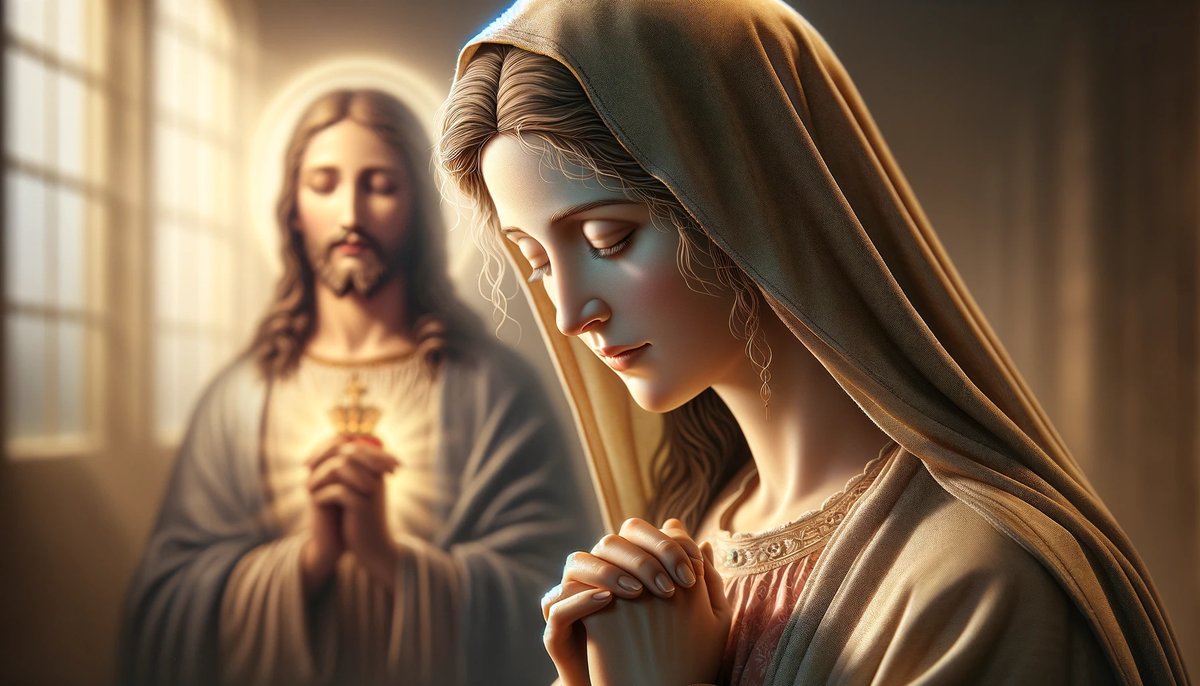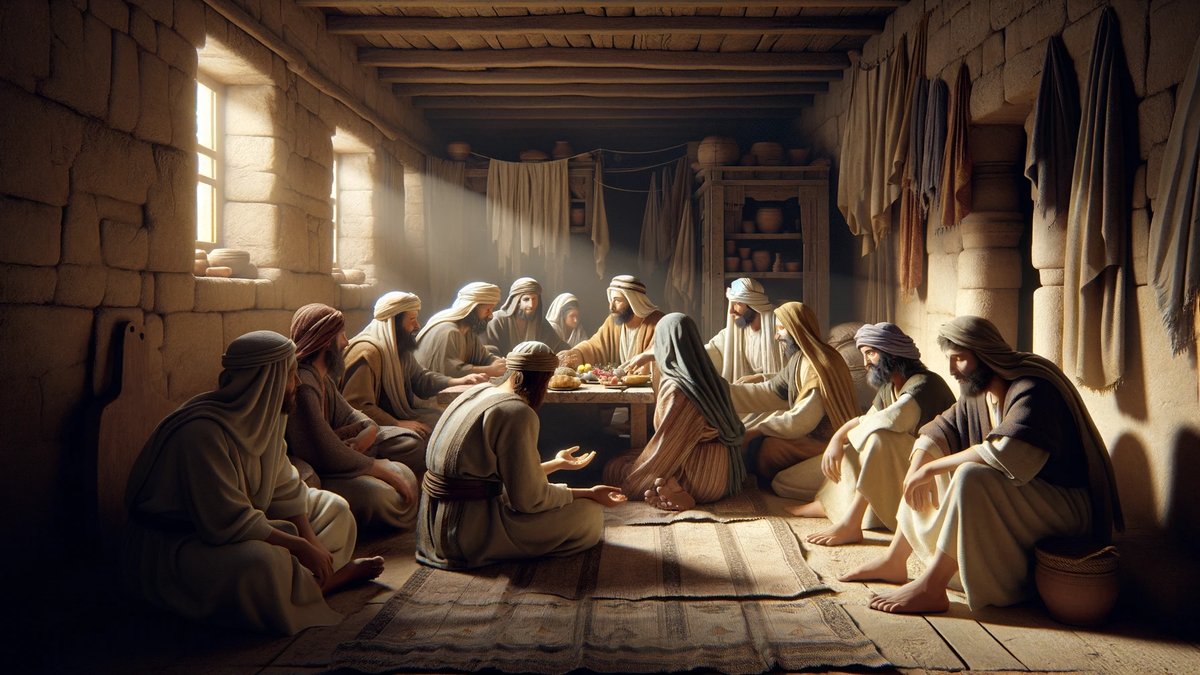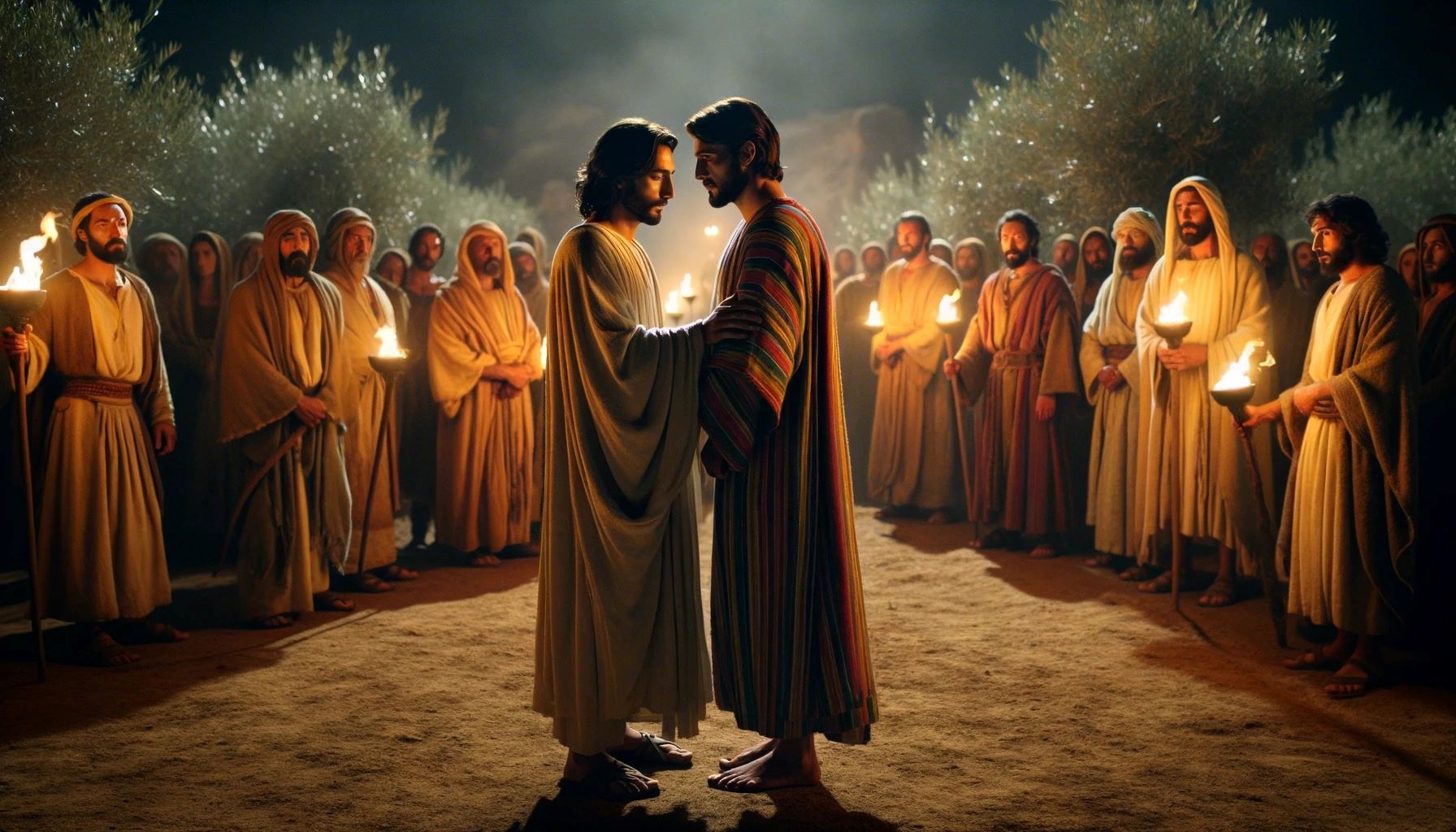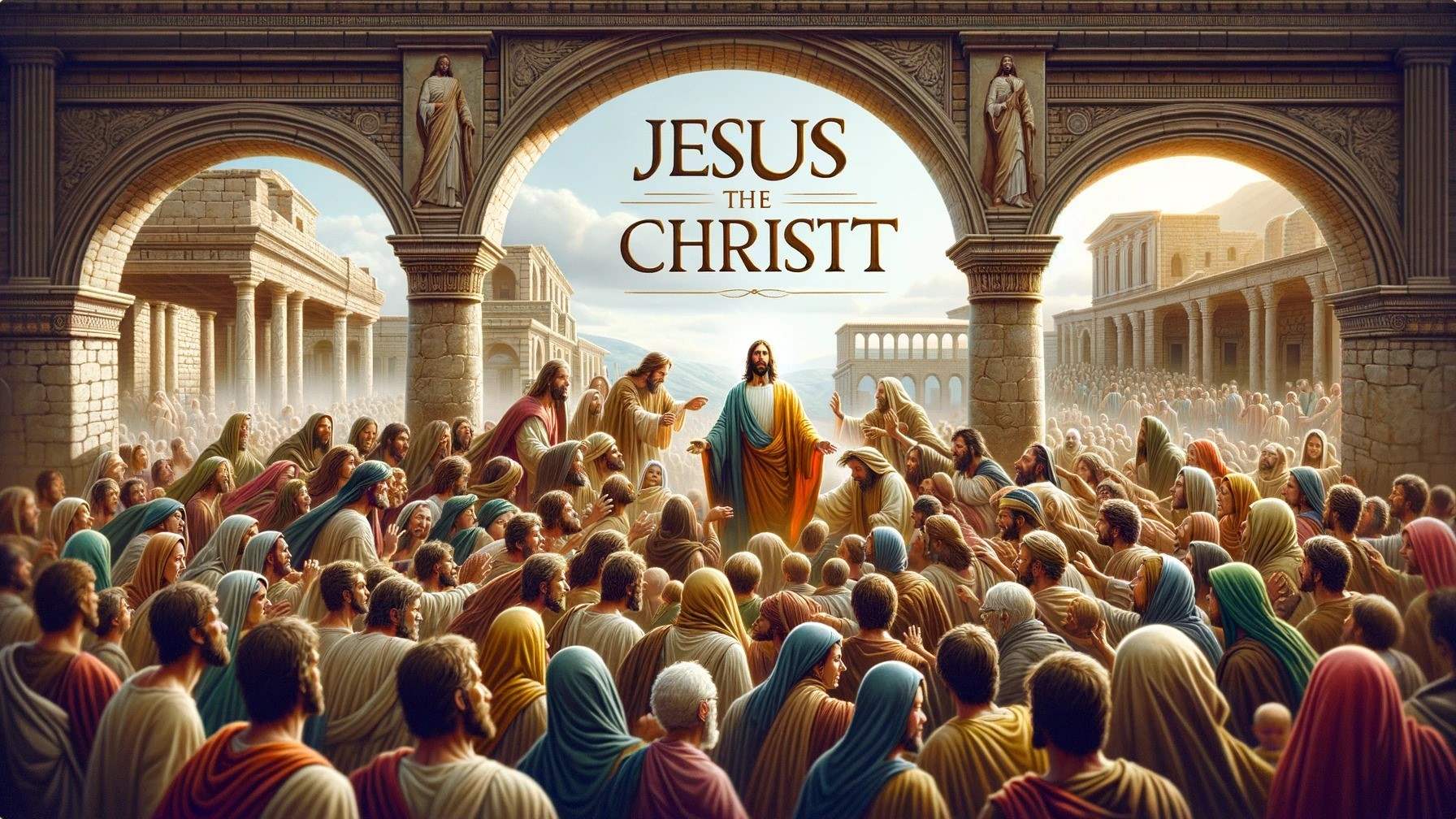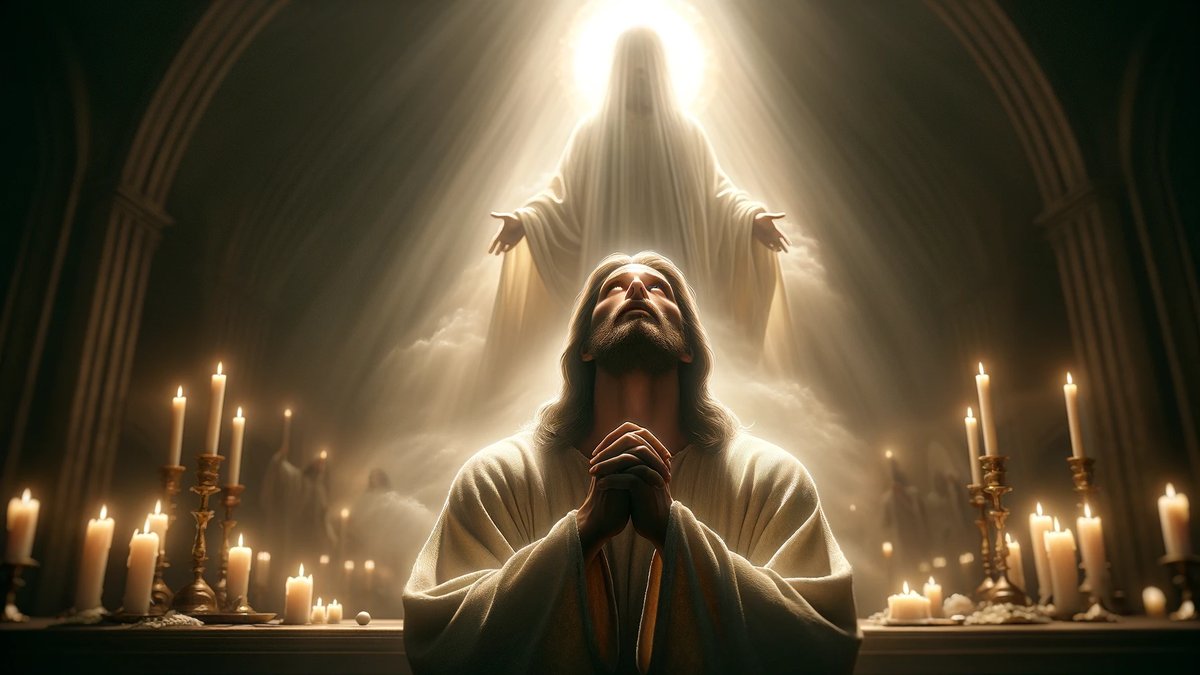Home>Christian Videos>Bible Stories>Who Is The Father Of Jesus Christ
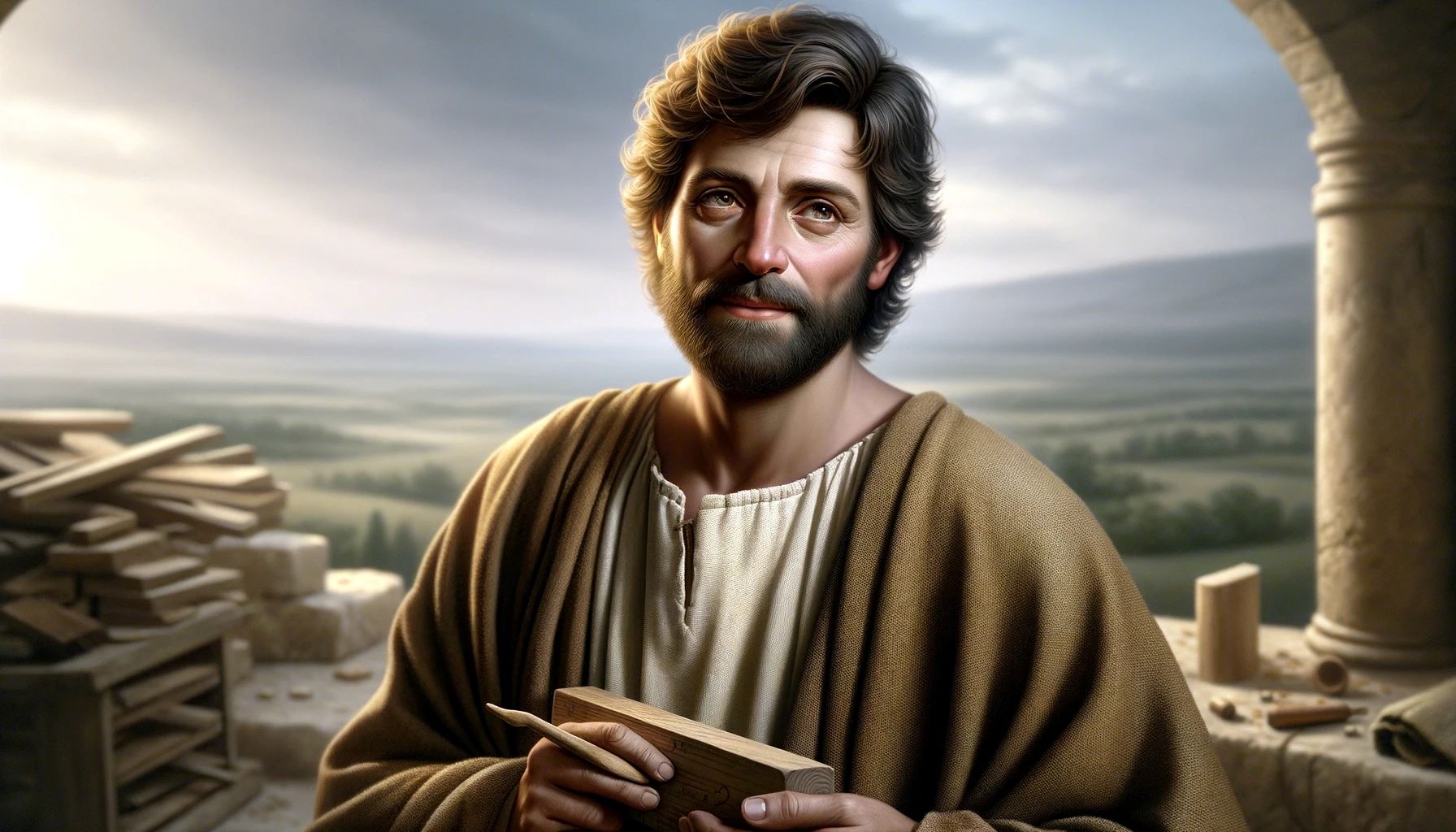

Bible Stories
Who Is The Father Of Jesus Christ
Published: March 2, 2024
Ericka Andersen, an editor at Christian.net, expertly merges digital strategy with content creation, focusing on faith and societal issues. Her communication skills enhance the platform's engaging narratives, fostering meaningful dialogue on belief's impact on society.
Discover the intriguing story of the father of Jesus Christ and delve into the timeless wisdom of Bible stories. Uncover the profound significance of this pivotal figure in Christian history.
(Many of the links in this article redirect to a specific reviewed product. Your purchase of these products through affiliate links helps to generate commission for Christian.net, at no extra cost. Learn more)
Table of Contents
The Virgin Birth of Jesus
The virgin birth of Jesus is a fundamental belief in Christianity, asserting that Jesus was conceived in the womb of his mother, Mary, by the Holy Spirit without the involvement of a human father. This miraculous event is described in the Gospels of Matthew and Luke in the New Testament of the Bible. The virgin birth is a cornerstone of Christian faith, as it signifies the divine nature of Jesus and fulfills the prophecy of the Messiah's coming in the Old Testament.
-
Fulfillment of Prophecy: The virgin birth of Jesus fulfills the prophecy in the book of Isaiah, which states, "Behold, the virgin shall conceive and bear a son, and shall call his name Immanuel" (Isaiah 7:14). This prophecy was understood by early Christians as being fulfilled in the birth of Jesus, emphasizing the divine nature of his conception.
-
Significance of the Virgin Birth: The virgin birth is significant as it underscores the belief in the incarnation of God in human form. It signifies that Jesus is both fully divine and fully human, a concept central to Christian theology. The absence of a human father in Jesus' conception highlights his unique and divine nature, setting him apart from all other figures in human history.
-
Theological Implications: The virgin birth is foundational to the Christian understanding of salvation. It is believed that through the virgin birth, Jesus entered the world as the perfect and sinless Son of God, capable of offering himself as a sacrifice for the redemption of humanity. This theological understanding forms the basis of Christian soteriology, or the doctrine of salvation.
-
Challenges and Debates: The concept of the virgin birth has been a subject of debate and skepticism in both religious and secular circles. Critics often question the scientific plausibility of a virgin conception, while theologians and apologists assert the miraculous nature of the event as a matter of faith.
The virgin birth of Jesus holds a central place in Christian faith and theology, serving as a testament to the divine nature of Jesus and the fulfillment of ancient prophecies. It is a foundational belief that shapes the understanding of Jesus' identity and mission, and continues to be a point of contemplation and reverence for believers around the world.
The Genealogy of Jesus
The genealogy of Jesus, as recorded in the Gospels of Matthew and Luke, traces his lineage back to King David and ultimately to Adam, the first man according to the creation narrative in the book of Genesis. This genealogical record serves to establish Jesus' royal and messianic lineage, fulfilling the Old Testament prophecies regarding the coming of a descendant of David who would reign as the promised Messiah.
-
Matthew's Genealogy: The Gospel of Matthew presents a genealogy of Jesus that emphasizes his connection to the royal line of David. It begins with Abraham, the patriarch of the Israelites, and extends through King David and the subsequent kings of Judah. Matthew's genealogy highlights Jesus' rightful claim to the throne of David, affirming his messianic credentials as the long-awaited King of the Jews.
-
Luke's Genealogy: In contrast, the Gospel of Luke provides a genealogy of Jesus that traces his ancestry all the way back to Adam, portraying Jesus as the Son of Man and the Savior of all humanity. While Luke also includes David in the genealogy, the emphasis is on Jesus' universal role as the redeemer of all people, regardless of their ethnic or national identity.
-
Symbolic Significance: The genealogies of Jesus hold symbolic significance beyond their historical and genealogical value. They signify Jesus' solidarity with humanity, as he is depicted as the fulfillment of both the promises given to the people of Israel and the hope of redemption for all of humanity. The inclusion of various figures, including women and individuals with questionable backgrounds, underscores the inclusive nature of Jesus' redemptive mission.
-
Fulfillment of Prophecy: Both genealogies serve to fulfill the messianic prophecies found in the Hebrew Scriptures. They establish Jesus' rightful claim to the titles of Messiah and Son of David, as foretold by the prophets. The meticulous preservation of these genealogies underscores the divine orchestration of Jesus' arrival as the long-awaited fulfillment of God's promises to His people.
-
Theological Implications: The genealogies of Jesus affirm his dual identity as both fully human and fully divine. They demonstrate his historical connection to the people of Israel and the broader human family, while also highlighting his unique role as the Savior and Redeemer. The genealogies point to the overarching narrative of God's redemptive plan for humanity, culminating in the person of Jesus Christ.
The genealogies of Jesus provide a rich tapestry of historical, theological, and symbolic significance, affirming his identity as the promised Messiah and the embodiment of God's redemptive purposes for humanity. They serve as a testament to the continuity of God's plan throughout history and the fulfillment of His promises in the person of Jesus.
The Role of Joseph in Jesus' Life
Joseph, the earthly father of Jesus, plays a significant role in the life and upbringing of the Son of God. While the Gospels primarily focus on the ministry and teachings of Jesus, they also provide glimpses of Joseph's pivotal role in shaping the early years of Jesus' life.
-
Guardian and Protector: Joseph served as the guardian and protector of Jesus and his mother, Mary. When Joseph discovered that Mary was pregnant, he initially planned to divorce her quietly to spare her from public shame. However, after an angelic visitation, Joseph obediently took Mary as his wife and became the earthly caretaker of Jesus. His commitment to protecting and providing for his family is evident in the Gospel narratives.
-
Provider and Mentor: As a carpenter by trade, Joseph would have imparted his skills and knowledge to Jesus, thereby shaping his early years and preparing him for his future ministry. Joseph's role as a provider for the family ensured that Jesus grew up in a nurturing and stable environment, where he would have learned the values of hard work, integrity, and compassion.
-
Spiritual Influence: While the Gospels emphasize Mary's role in Jesus' upbringing, Joseph's spiritual influence on Jesus should not be overlooked. As a devout Jew, Joseph would have played a significant part in Jesus' religious education, teaching him the scriptures, traditions, and practices of their faith. Joseph's guidance would have contributed to Jesus' deep understanding of the Hebrew Scriptures and his commitment to fulfilling God's purposes.
-
Model of Obedience and Faith: Joseph's unwavering obedience to divine messages, such as the angelic visitations in dreams, serves as a model of faith and trust in God's providence. His willingness to accept and fulfill his role in the unfolding plan of salvation demonstrates a profound faith that undoubtedly left a lasting impression on Jesus.
-
Absence in Jesus' Adult Ministry: While Joseph's influence is evident in Jesus' formative years, the Gospels do not record his presence during Jesus' adult ministry. This absence has led to speculation about Joseph's possible passing before Jesus began his public ministry, highlighting the emphasis on Jesus' divine mission and identity.
Joseph's role in Jesus' life, though understated in the Gospel narratives, is nonetheless crucial in shaping the upbringing and early experiences of the Son of God. His obedience, guidance, and provision contributed to the earthly foundation upon which Jesus' divine mission would ultimately unfold.
The Divine Paternity of Jesus
The divine paternity of Jesus refers to the belief that his true father is God, as opposed to a human father. This concept is central to Christian theology and underscores the unique nature of Jesus as the Son of God. The Gospels of Matthew and Luke present the accounts of the virgin birth, affirming that Jesus was conceived by the Holy Spirit in the womb of Mary, thereby emphasizing his divine origin.
1. Incarnation of God
The divine paternity of Jesus signifies the incarnation of God in human form. It asserts that Jesus, as the Son of God, possesses a divine nature that is inseparable from his human identity. This union of the divine and human in Jesus is a foundational tenet of Christian faith, emphasizing the mystery of the God-man relationship.
2. Son of God
The divine paternity of Jesus establishes his unique identity as the Son of God. This divine filiation sets Jesus apart from all other figures in human history, signifying his pre-existence and eternal nature as the second person of the Trinity. The affirmation of Jesus' divine sonship is a cornerstone of Christian belief, reflecting the intimate relationship between Jesus and God the Father.
3. Redemption and Salvation
The divine paternity of Jesus holds profound implications for the Christian understanding of redemption and salvation. It is believed that through his divine nature, Jesus was able to offer himself as the perfect and sinless sacrifice for the atonement of humanity's sins. His divine paternity underscores his role as the Savior and Redeemer, capable of reconciling humanity with God through his sacrificial death and resurrection.
4. Theological Significance
The divine paternity of Jesus has far-reaching theological significance, shaping the doctrines of the Trinity, the hypostatic union, and the redemptive work of Christ. It underscores the unity of the Godhead while affirming the distinct personhood of the Father, the Son, and the Holy Spirit. The divine paternity of Jesus is a focal point in Christian reflection on the nature of God and the mystery of the Incarnation.
5. Controversies and Debates
The concept of the divine paternity of Jesus has been a subject of theological controversies and debates throughout Christian history. Various theological perspectives and interpretations have emerged, leading to discussions on the nature of Jesus' divine sonship, the relationship between the Father and the Son, and the implications for Christian faith and practice.
The divine paternity of Jesus stands as a foundational truth in Christian belief, affirming his unique identity as the Son of God and the Savior of humanity. It is a concept that continues to inspire contemplation, theological exploration, and devotion among believers, reflecting the profound mystery of God's redemptive plan in the person of Jesus Christ.

